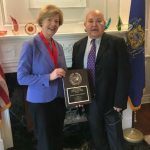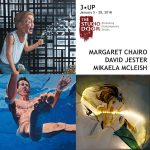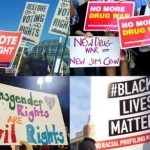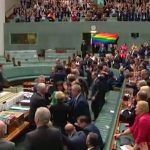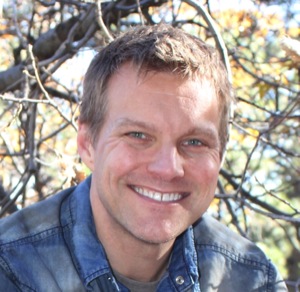
I am reluctant to play the age card because change is inevitable and progress is … well, progress. But in this case I will.
Back in the dark ages of the 1970s and 1980s when I was plump, young and oh-so serious I used to journal a lot, put onto paper all the dark and exhilarating things I was feeling. I used to read a lot too, relishing new literary discoveries by the likes of Christopher Isherwood, Paul Monette and Dorothy Allison. No matter where I lived, paperback books and spiral-bound notebooks were stacked everywhere. I still have them all.
Now, however, in our wonderful new world of Tweets and online posts, text messages and the comparatively epic email I wonder whether the once literate human race is becoming, ironically, less literate, devoting less time to fewer, less meaningful words. I wonder whether many of us even have the attention span to read a good, long book or journal on a regular basis. Life moves at a fair old clip and there’s always a chirping, ringing, vibrating device nearby demanding our attention.
I am not the first to suggest this, but despite the opportunity for constant connectedness perhaps we are farther away from one another than ever before, especially the distant factions within our already disconnected L – G – B – T community.
Enter So Say We All, a local nonprofit narrative arts organization whose mission is to provide arts education and opportunities for expression to communities without access. Like other similar endeavors such as The Moth and This American Life, So Say We All is devoted to words and books and storytelling.
So Say We All’s motto is this: “You are Your Story.” Every program they launch is motivated by a belief that we all have stories to tell and that the more disenfranchised the community the more vital it is to create a forum for that community to write its truth. To that end So Say We All has worked with the Braille Institute, veterans and the Native American community. It has anthologized stories about life in the often disparaged and not so faraway East County. And, lest we forget, it has provided a stage and an increasingly enthusiastic audience for tormented hipsters everywhere thanks to the ever-popular monthly VAMP reading events at the Whistlestop Bar in South Park.
Now it’s our turn!
Beginning Jan. 29 So Say We All will offer a brand new LGBT Writing Workshop (aka the infamous So Say We All “Green Room”) at ArtLab Studios on Adams Avenue in North Park.
Green Rooms are free, no obligation drop-in spaces that have served as tributaries to So Say We All’s main stage events (like VAMP, published anthologies and more). It’s an incubator of sorts, a safe space for anyone who enjoys writing to stop by, find motivation, absorb collective support and even, ultimately find an audience when you are ready.
Each Green Room is facilitated by a volunteer writer affiliated with So Say We All, someone with experience with the written and spoken word. One of the LGBT Green Room’s facilitators is Brian Joyner, a corporate professional by day but an avid writer during his free time. I’ve crossed paths with Brian many times at local writing events and workshops. I asked him about this new endeavor:
San Diego LGBT Weekly: What motivated you to help spearhead So Say We All’s first LGBT Green Room?
Brian Joyner: An LGBT oriented Green Room fit So Say We All’s mission perfectly. The organization has always been supportive of queer voices, especially around Pride month and I know it was something on their radar to do. Meanwhile, I had been pursuing my own writing as a hobby and in conjunction with various workshops happening around town; but I was looking for something more. It was only a matter of timing for this to come together.
Tell me about your background writing?
I’ve been writing a lot lately.
Whether we recognize it or not I think most of us in the LGBT community have lived our lives as writers. From puberty or earlier, we created stories to hide our true selves from our family, our friends and even ourselves. For some of us, myself included, we didn’t stop writing fiction after we came out of the closet. We put up a new front, something to show the world that our lives were more fabulous, exciting and wonderful than those in the straight world.
I grew up with no gay role model to follow. I had no idea about what it meant to be a gay man in his 20s or 30s. Even now, I have no idea what it’s like to be a gay man in his 50s or 60s. I hope to be able to share my story and learn from others. I don’t think I am alone. That is why I am so excited about this new ongoing workshop.
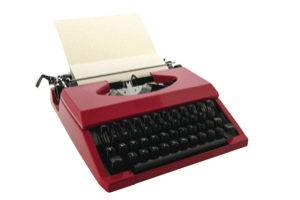
In addition to individual writing aspirations, is there something community-wide that this kind of workshop can contribute to?
An important part of the group is to bridge the gap that seems to divide our community. Rarely do gays and lesbians hang out together. We have different bars and social circles. Many of us don’t understand bisexuality and have little experience with the transgender community. We need to share our common experiences to come together and support each other, to understand our differences and appreciate our similarities. I think a writing space can do this.
What should people attending the workshop expect?
Unlike other Green Rooms the LGBT workshop will be 90 minutes long and ideally it will happen twice a month. We believe there are so many people in our community with stories to tell that we need time and opportunity for everyone to commit to the process. Each meeting will consist of a guided discussion and a generative free-write directed specifically for members of the LGBT community. All are welcome; a teenager who has just left home under difficult circumstances; a middle-aged man who has lived with HIV/AIDS for his entire adult life; a club-going twenty-something or a lesbian parent. Over the course of 90 minutes writers will be guided through a topic discussion, a period of in-class writing, and an opportunity to share their work (but only if they want to) at the end. It’s an opportunity to come out all over again, make friends, and feed your creative streak!
What will your role be at the workshops?
As a writer today, my goal is to find and examine my authentic self so I will be writing too. But, as with the other So Say We All Green Rooms that happen around town my goal as a facilitator of this LGBT group is to create a safe place for our community to share our common stories, to learn from each other and to eradicate the shame that has been so much a part of the LGBT experience. Mine, is a pretty minimal role. I’ll simply show up every two weeks with a hello and some writing prompts.
Most Green Rooms have traditionally lasted for an hour and been scheduled once a month Why is this one different?
Writing with a group of people is fun. I’ve always walked away from a writing group with joy in my soul and I want to ensure that this happens each and every time our community comes together in this exciting new forum. But 60 minutes can fly by and the writing can sometimes be forced to end just when the juices start flowing. We felt that 90 minutes would be ideal. I also have a hunch that there are many people out there in the LGBT community eager to engage with a space like this. So we thought we’d begin by offering it twice a month and then see where it goes.
Any other details?
The Green Room is totally free, no sign up necessary (but you can join our Facebook page if you like).
Inaugural meeting: Wednesday, Jan. 29, 6:30-8 p.m.
Artlab Studios
3536 Adams Ave. in San Diego
619-750-3355
http://on.fb.me/19sVAJW







